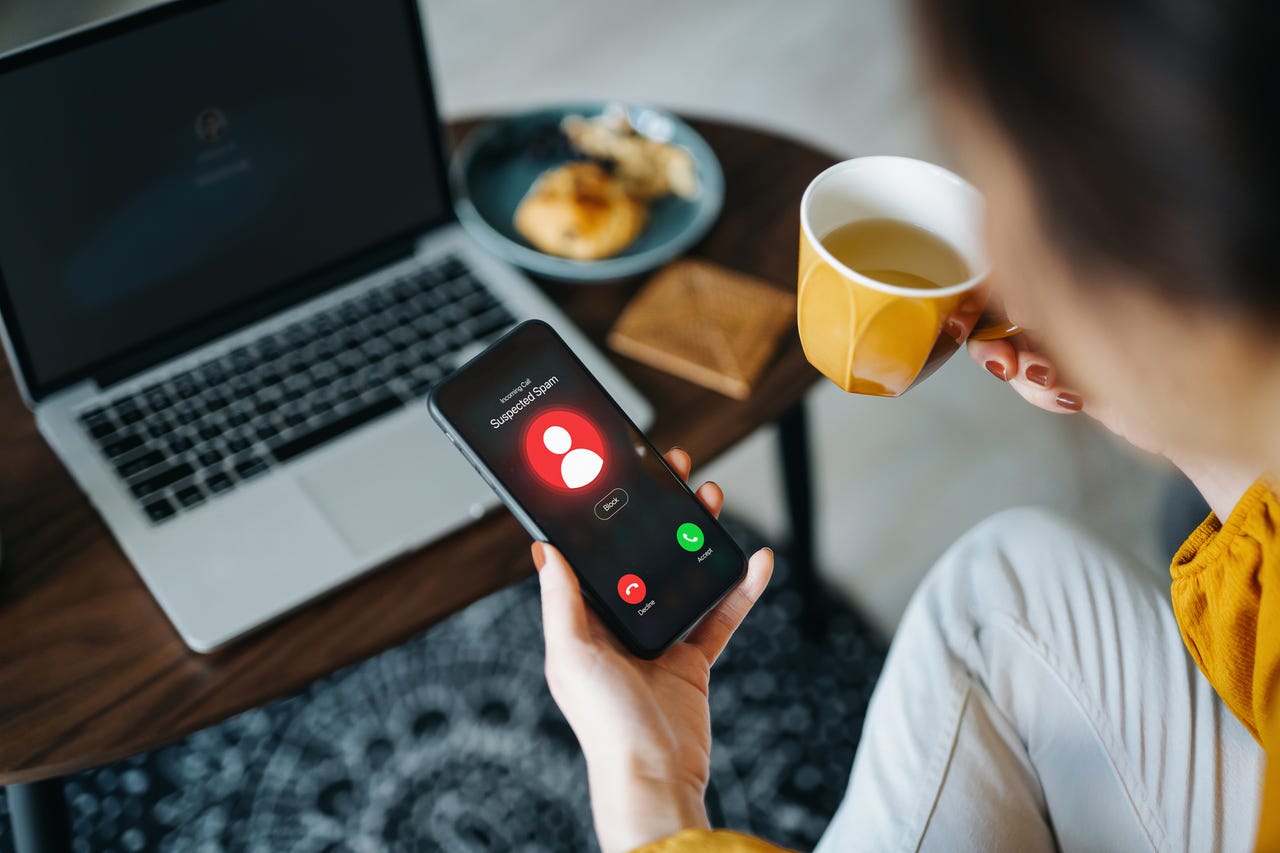Singapore telcos to let subscribers block international calls in new anti-scam measure

Mobile subscribers in Singapore can now instruct their carrier to block all incoming calls from international numbers, as part of the government’s efforts to curb the growing volume of online scams targeting the local population.
The option is available to customers of the country’s four mobile operators: M1, StarHub, Singtel, and Simba, formerly called TPG Telecom.
Also: The best VPN services (and how to choose the right one for you)
More than 300 million scam calls made from international numbers were blocked by the telcos between January and September last year, according to industry regulator Infocomm Media Development Authority (IMDA). Some 1.6 billion international calls a year are received in Singapore.
Those figures point to one blocked call for every four incoming calls from international numbers, IMDA said, adding that it has been working with local telcos to roll out various measures to curb scams. These measures have included the blocking of international calls that clocked unusually high frequency, which typically indicated they were triggered by automated scan systems. International calls with a falsified “+65” prefix in the caller ID indicator were also directly blocked by telcos.
Also: The best VPN services for iPhone and iPad (yes, you need to use one)
Another initiative, introduced last January, tags SMS messages from businesses that are not registered on the Singapore SMS Sender ID Registry as “Likely-SCAM”, to warn mobile users of potential scammers. This measure helped cut the number of SMS scam cases by 70% in three months after it was rolled out.
The new blocking measure will enable mobile users to choose to bar all international calls, IMDA said in a statement. Should users opt in to activate the service with their telco. Calls made from Singapore while subscribers are overseas will still be put through.
Users can also choose to enable the call-blocking feature by default, but have it disabled when they are overseas, so international calls from their hotel operator or ground transport provider, for instance, can be received.
The service can be activated via call, SMS, or via the telco’s app.
IMDA said the call-blocking feature will be extended to include SMS messages from international numbers by mid-2024. “These new measures are part of an ongoing multi-layered approach to strengthen protection against scams,” it said. “IMDA has been working with the telcos to systemically reduce scam calls and SMS coming through the communication networks.”
Also: Cybersecurity 101: Everything on how to protect your privacy and stay safe online
According to local police, 103 victims lost more than SG$161,000 ($121,583) to phishing scams in December alone. These scammers impersonated banks through spoofed SMS messages to extract information on victims’ online banking usernames and passwords, including one-time passwords. Most of these messages were from “+65” prefix numbers and contained hyperlinks to phishing sites.
In 2022, more than 8,500 phishing attacks were reported to the Singapore Cyber Emergency Response Team (SingCERT), compared to 3,100 cases reported the year before. This increase parallels wider global trends, said Singapore’s Cyber Security Agency, with SingCERT in 2022 facilitating the takedown of 2,918 phishing sites.
Phishing attacks were the leading type of scam in Singapore in 2022, clocking 7,097 reported cases, up 41.3% from 2021, according to figures from the Singapore Police Force. Some 33,669 cases of scams and cybercrimes were reported in 2022, 25.2% higher than 2021, with more than SG$660.7 million ($498.94 million) lost to scammers.
The government in October laid out a framework detailing parties that should be held responsible for phishing scams, with banks and telcos taking on accountability for the first line of defense. It assigns “relevant duties” to both financial institutions and telcos to mitigate such scams and details financial damages to be paid out to affected victims, should these duties be breached.
Also: The best identity theft protection and credit monitoring services
In the proposed shared responsibility framework, Singapore said financial institutions are critical as gatekeepers against the outflow of funds due to scams, while telcos play a supporting role as infrastructure providers of SMS, which is often used by scammers to communicate with targeted victims.
The government, though, has also underscored the need for consumers to shoulder some responsibility with vigilance.
In its latest statement, IMDA urged the public to not let their guard down when receiving calls and SMS.
“Scammers will continue to change their methods and tactics and there is no foolproof measure even as we continue to monitor and implement additional safeguards,” the Singapore regulator said. “A discerning public is the key in this fight, where consumers are individually alert and raise collective awareness by sharing scam prevention tips with friends and loved ones.”
Singtel said its Scam Call Protect service blocks at least 30 million scam calls and 20 million scam messages each month. The telco said its subscribers can activate the international call-blocking service via its mobile app or by calling in. They also can activate the service in-person by visiting its retail outlets.
Also: The best VPNs for streaming your favorite shows and sports
Similar options are provided by the other three telcos, with all four firms providing the service for free to their subscribers.
IMDA said Singapore’s anti-scam measures that specifically addressed calls using spoofed “+65” prefix numbers led to a significant drop in attempts. Some 18 million international calls from such numbers were made in the first nine months of 2023, of which 12 million were identified as spoof calls and blocked. This figure is a 97% dip compared to 700 million calls over the same period in 2022.
READ MORE HERE
